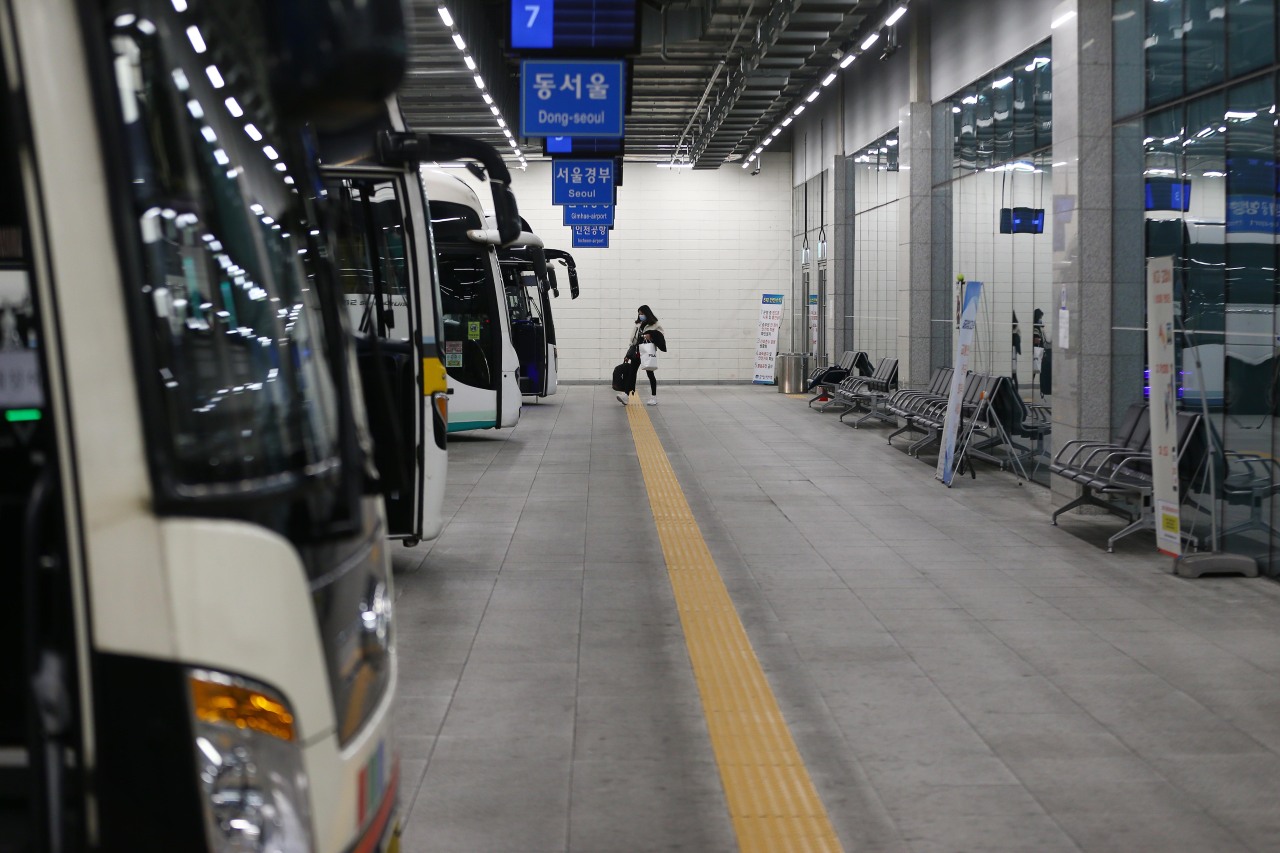 |
A bus terminal in Daegu stands mostly empty due to the COVID-19 outbreak. Yonhap |
The public trust in the presidential office and media fell while feelings of anger have grown significantly amid the ongoing COVID-19 outbreak, research showed Wednesday.
According to a survey conducted by a team led by professor You Myoung-soon of the Graduate School of Public Health at Seoul National University, 49.5 percent of the public said that they trusted Cheong Wa Dae with regards to the outbreak, while the figure for the media came to 39.9 percent.
In comparison, the figures for Cheong Wa Dae and the media had stood at 57.6 percent and 46.4 percent, respectively, in an earlier survey conducted by the team.
The first study was conducted between Jan. 31 and Feb. 4, and the second study was conducted Feb. 25-28.
The Korea Centers for Disease Control and Prevention gained more trust, with its figure growing from 74.8 percent to 81.1 percent over the same period.
More people have also responded that they felt like their lives have stopped in the second survey, with 59.8 percent agreeing with the statement in the second survey, compared to 48 percent in the earlier survey.
The survey also showed a significant rise in anger among the public. Asked what emotions COVID-19-related news incited, anxiety was most common with 48.8 percent, followed by anger at 21.6 percent. In comparison, the figure for anxiety was 60.2 percent and that for anger 6.8 percent in the earlier survey.
The proportion of those answering that there is a high chance of contracting the virus went from 12.7 percent to 19.8 percent, while the figure for those considering the chances low to be fell to 29.2 percent from 42.7 percent.
“The anxiety felt from the rising death toll, inability to buy masks and hearing about those breaking self-isolation rules is linked to distrust, so communication with a stronger accountability is needed,” You said in a press release.
You also said that survey results on emotional stress felt by those in Daegu and North Gyeongsang Province suggest that measures for addressing psychological health of those in the region are needed. About 90 percent of the country’s 5,328 confirmed cases, as of early Wednesday afternoon, are concentrated in Daegu and North Gyeongsang Province.
In the survey, 65 percent of respondents from the region said that they have considered themselves powerless, while 76.3 percent said that the situation is “very unfair and unjust.”
In comparison, the national average for a feeling of powerlessness came to 58.1 percent, and unfairness to 67.4 percent.
The survey showed that those in the region are experiencing significantly higher emotional stress in the COVID-19 outbreak compared to the national average.
By Choi He-suk (
cheesuk@heraldcorp.com)








![[Today’s K-pop] Blackpink’s Jennie, Lisa invited to Coachella as solo acts](http://res.heraldm.com/phpwas/restmb_idxmake.php?idx=644&simg=/content/image/2024/11/21/20241121050099_0.jpg)